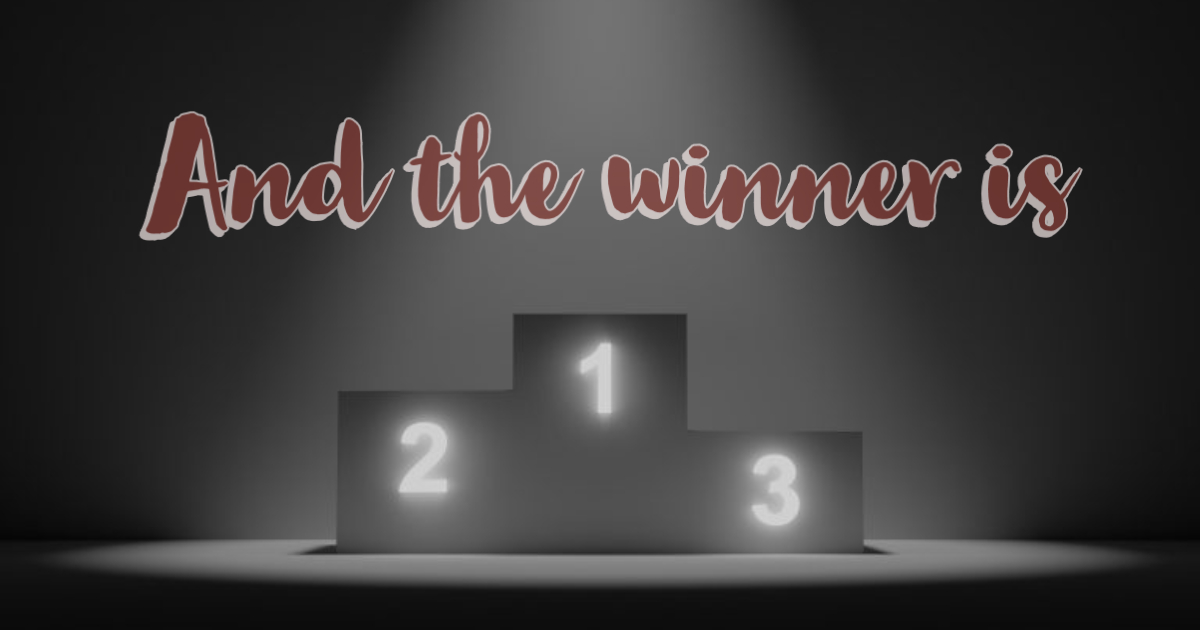Judging a writing competition is NERVE-WRACKING. You can make or break someone with your decision, because their entry might be their final try at being a writer. So, the decisions you make must be carefully considered, with clear reasons for each of your choices.
There are several steps I take, when judging a writing competition:
1. Read and enjoy each of the stories without judging them – be open and just see how each story makes you feel – do any stand out, or keep coming back to your mind after you’ve read them?

2. Next, decide what criteria you are going to use to judge your entries. Usually, the competition will have a theme, a genre or specific topic, so you will need to see how well each story fits within that criteria – does it do what it is supposed to do.
For example, does an entry in a Ghost Story competition give you a scare? Is that actually important, or is it only important that the story contains a ghost? (It could be a comedy with a ghost). It is really important that you have in mind exactly what your criteria is for the competition brief that has been set – remember, you are basing your decision on this criteria and will need to justify your choice of winners and losers based on it (and other factors).
Look at the grammar and punctuation. How important is perfect punctuation to this particular story, writing group or situation? Could a great story override imperfect technique? It is your responsibility to decide and your task to justify.
There will be a myriad of writing styles, some of which you like and some that you may not care for. Try not to be swayed by your own preferences.
And talking of preferences – perhaps you hate happy endings, or you loathe swathes of detailed descriptions. Do not discount stories based on your own taste, you need to focus on the merits of the story and technique over and above what you do and don’t like.
Word counts are non-negotiable. You can’t let someone win if they wont stick to the most basic of criteria – it isn’t fair on the other entries.
3. Now you have decided how you are going to judge your stories, it is time to read each one again, but this time with a pen and paper, or computer to hand.
I use Microsoft Word and create a document with a new page per story, each one titled with the story name. As I read each story, I make notes about five aspects. These notes are important because you will use this to give feedback, either verbally in person, or to hand to the writer.
- What I like about the story (always give some positive feedback).
- I note any lines, phrases or words that I find pleasing or clever.
- I will note anything that I feel needs more clarification for the reader.
- I make suggestions about how the story might be even better, but ensure the writer understands that this is only my opinion and that a different reader may have a completely different view on the story.
- I will also make a note of any obvious errors, such as typos, repetition and incorrect words – this isn’t an edit and certainly not a proof-reading, but I know that a writer will want to know where there are errors so that they can be corrected before the story is sent off to another competition.
I also write a single sentence description for each story, which I place under the story heading. The purpose of this is to give the writer an understanding of how their story is seen by the reader, a bit like an ‘elevator pitch’ – for example in a recent competition I judged, I described one story as: ‘A young American student is wooed by a strange man with a passion for history and a worrying interest in reincarnation.’ This isn’t something that you have to do, but I find it particularly useful if I am presenting feedback at a group without first reading the story to them.
4. After that, I leave the stories for a bit and then I will go back and read them again, adding more notes and making sure my notes are well written, clear and useful to the writer.
5. Last of all, choose a winner and runners up. You should be familiar with all the stories and you may find one in particular stands out above the rest, or there are few obvious winners. Make a pile of the all the ‘top’ stories and consider what makes them the best?
Consider: Plot, Voice, Writing Style, Satisfaction of the story brief and any other criteria you want. Where do each of your top stories excel, and do any excel in many areas? I usually create a table to help me work out the placements.
| Story 1 | Story 2 | Story 3 | Story 4 | |
| Plot | good | good | fantastic | fantastic |
| Writing style | excellent | good | excellent | good |
| Voice | fantastic | good | unique | ok |
| Satisfies brief | mostly | yes | yes | yes |
| 2nd place | 4th place | 1st place | 3rd place |
As you can see, it is a lot of work judging a writing competition, but very rewarding and great fun if you get to present your results directly to the entrants.
